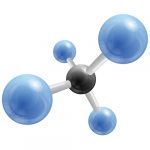Simple Steps for Minimizing Stormwater Pollution
Simple Steps for Minimizing Stormwater Pollution Stormwater runoff is the major contributor to the ongoing degradation of our nation’s surface and groundwater. Although we cannot control precipitation, there are plenty of ways to control its impact through measures that are both common sense and required by law. Here are some of EPA’s recommended measures for […]










